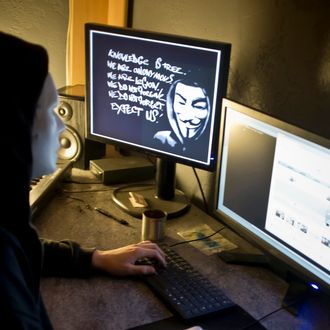
Last week, the foundering and often untrustworthy hacker collective Anonymous released the unique device identifiers (UDIDs) for 1 million Apple products and claimed to have stolen the data from the FBI in March. The intelligence agency, the hackers claimed, “wants you clearly identified, with all your personal details well packed into a government database so it can make its watchdogs’ lives easier” and must have been secretly tracking the every move of Apple users. Scary, no? As it turns out, the info almost definitely came from a small publishing company and app developer in Florida whose systems are definitely less secure than the FBI’s.
NBC reports that the app builders at Blue Toad compared its database with that of the hackers and found a 98 percent match. “That’s 100 percent confidence level, it’s our data,” said the company’s CEO Paul DeHart. “Timing-wise, [Anonymous’s] story doesn’t make sense.”
At the time, the FBI said “there is no evidence indicating that an FBI laptop was compromised or that the FBI either sought or obtained this data,” while a security expert brushed off the threat as posing “very little risk”: “This is smoke, not fire,” he said. It was also, apparently, the hackers crying wolf. And we know how that fable ends.





























